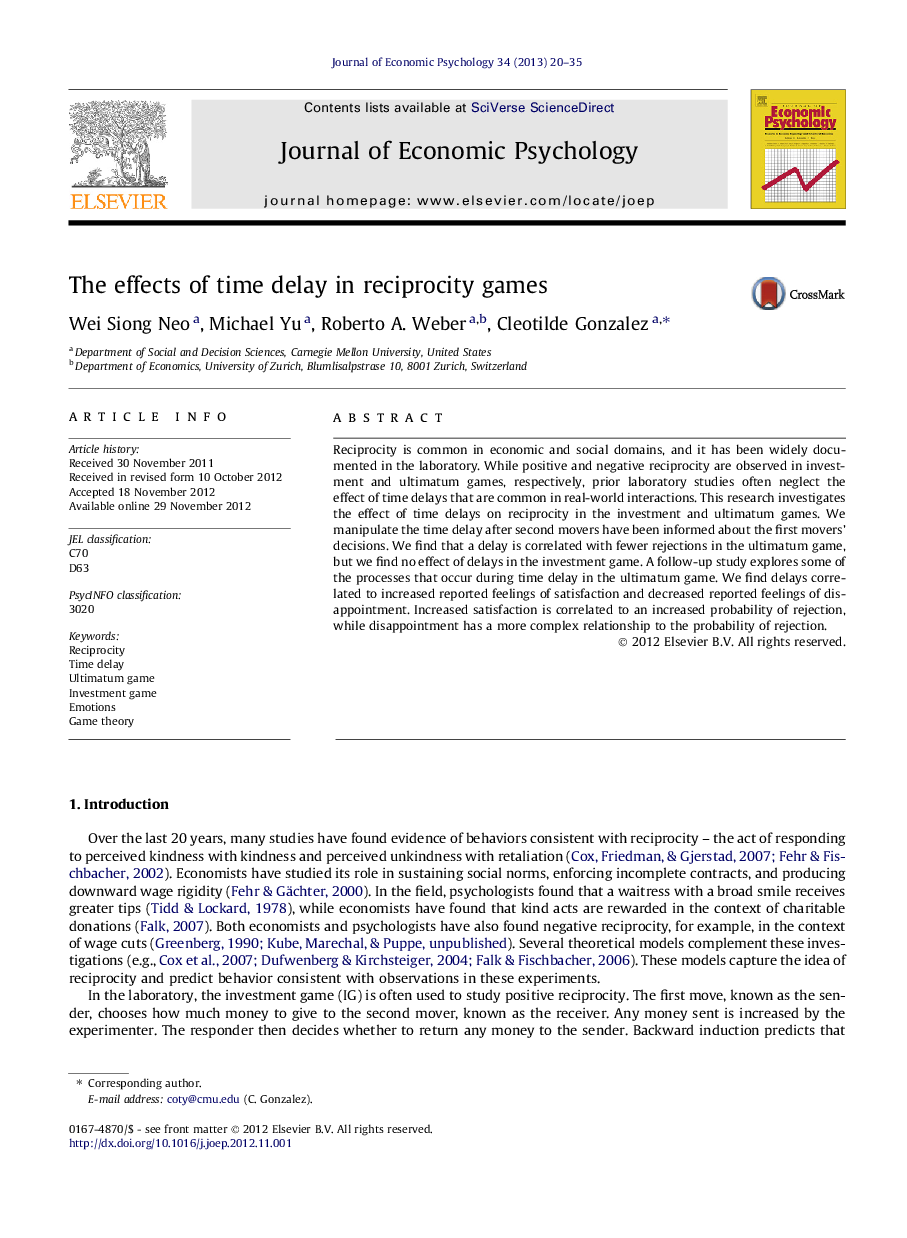| Article ID | Journal | Published Year | Pages | File Type |
|---|---|---|---|---|
| 885065 | Journal of Economic Psychology | 2013 | 16 Pages |
Reciprocity is common in economic and social domains, and it has been widely documented in the laboratory. While positive and negative reciprocity are observed in investment and ultimatum games, respectively, prior laboratory studies often neglect the effect of time delays that are common in real-world interactions. This research investigates the effect of time delays on reciprocity in the investment and ultimatum games. We manipulate the time delay after second movers have been informed about the first movers’ decisions. We find that a delay is correlated with fewer rejections in the ultimatum game, but we find no effect of delays in the investment game. A follow-up study explores some of the processes that occur during time delay in the ultimatum game. We find delays correlated to increased reported feelings of satisfaction and decreased reported feelings of disappointment. Increased satisfaction is correlated to an increased probability of rejection, while disappointment has a more complex relationship to the probability of rejection.
► We introduce time delays in the ultimatum game (UG) and investment game (IG). ► Delays correlate with lower rejections in UG, but do not affect behavior in the IG. ► In UG, delays correlate with higher satisfaction and lower disappointment. ► In UG, higher satisfaction correlated with lower probability of rejection. ► No support for reflective processing or loss aversion in UG time delay effects.
